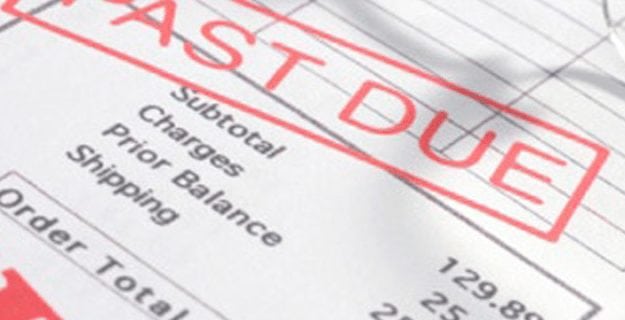It’s possible to keep a home when you file for bankruptcy, but the circumstances must be right. You’ll need to be sure that you meet the requirements of the chapter you file. For instance, Chapter 7 filers must be current on payments and protect all home equity with a bankruptcy exemption. By contrast, Chapter 13 filers can catch up on missed mortgage payments and keep the home. Read on to learn about:
- protecting home equity in Chapter 7 and 13
- keeping a home in Chapter 7
- catching up on past-due payments in Chapter 13, and
- removing liens and lowering mortgage payments in Chapter 13.
Protecting Your Home Equity in Chapter 7 or Chapter 13 Bankruptcy
Start by determining whether you can protect all of your home equity in bankruptcy. You must complete this critical step in both Chapter 7 and Chapter 13 bankruptcy.
In both bankruptcy chapters, you protect an asset with a bankruptcy exemption. Each state has a list of exemptions, so the property type and amount of equity you can protect using state exemptions varies widely.
Only a few states let you keep all of your home equity when you file bankruptcy. Most states have a much lower “homestead exemption.” Here’s how the homestead exemption works in Chapter 7 and 13.
- Chapter 7 case. Suppose the exemption isn’t enough to cover the entire amount of your equity. In that case, the Chapter 7 court-appointed trustee will sell it and use the proceeds above your exemption amount to pay off some of your unsecured debt, like credit cards and medical bills.
- Chapter 13 case. Chapter 13 bankruptcy works differently. You won’t be forced to give up any property. Instead, you’ll pay for the nonexempt portion of the equity in your plan. Of course, if you have significant nonexempt equity, this could get expensive. You’ll have to demonstrate that you have enough income to pay all amounts required in your plan.
Example. You have $50,000 in equity in your house, but the maximum amount you can exempt is $30,000. You’ll have to structure your Chapter 13 payment plan so that your unsecured creditors will receive at least $20,000 over the life of the plan. That amount is in addition to any other debts your plan payment must cover, like mortgage arrearages and car payments.
Find out more about what happens to your home and mortgage in Chapter 13 bankruptcy.
But being able to protect or pay for your home equity isn’t enough. You’ll have other requirements you must meet, as well.
Keeping Your Home in Chapter 7 Bankruptcy
A Chapter 7 bankruptcy is often more attractive because it’s simpler and gets you on the road to financial stability sooner because you don’t pay into a three- to five-year repayment plan.
You’ll be able to keep your house as long as you meet the following criteria:
- You’re current on your house payments.
- You can protect all of your home equity with a bankruptcy exemption (see above).
- You’ll be able to continue making your payments in the future.
Chapter 7 bankruptcy does have some limits as a tool for managing mortgage debt, however. It won’t help you catch up on past-due payments, and it might be challenging to protect the house if you have a lot of equity in it. The bankruptcy trustee will sell it and use the nonexempt equity to pay other creditors, such as back taxes, credit card balances, and personal loans.
Chapter 13 bankruptcy can be a better choice to address both those issues so you can keep the home. Chapter 13 might also allow you to get rid of second or third mortgages.
Chapter 13 Bankruptcy and Past-Due Mortgage Payments
If you’re behind on your mortgage payments and you want to keep the house, Chapter 13 bankruptcy provides a mechanism for helping you get caught up—something that Chapter 7 bankruptcy cannot do.
- Propose a repayment plan. In Chapter 13 bankruptcy, you propose a repayment plan that will allow you to pay your creditors over three to five years. You can treat your mortgage arrearage as a separate debt and add it to your payment plan.
- Show you have sufficient income. Using the Chapter 13 plan to catch up on your arrearages will only work if you have the income to make both your regular monthly mortgage payment and your plan payment while you’re in bankruptcy.
Once you’re in Chapter 13, the mortgage holder can’t foreclose if you’re paying your house and plan payments on time and keeping to your mortgage terms, like ensuring that you have homeowners insurance in place.
Using Chapter 13 Bankruptcy to Remove Junior Liens
If you have a second or another junior lien on your homestead, you might be able to get rid of it through a process called “lien stripping.” Lien stripping is available only in a Chapter 13 case and only when your property is worth less than the primary loan balance.
To strip the lien, you’ll have to file a motion in the bankruptcy court and present evidence on the property’s value and the mortgage loan balances. If the court voids the junior lien, the debt you owe to that creditor will be treated in the Chapter 13 case as if it were unsecured. Any remaining balance will get wiped out with other qualifying unsecured debt at the end of the case.
Learn about lien stripping and getting rid of second mortgages in Chapter 13 bankruptcy. Call Firebaugh & Andrews for a free consultation 734-722-2999




